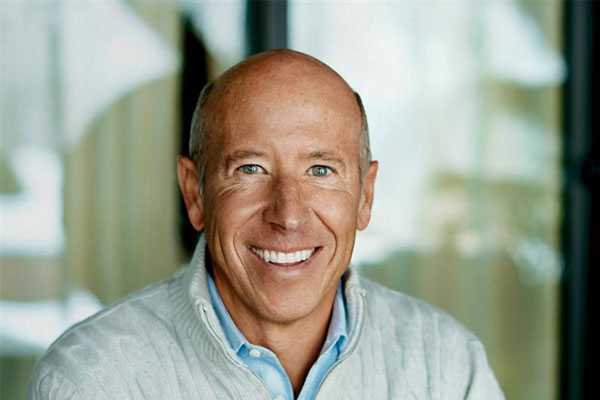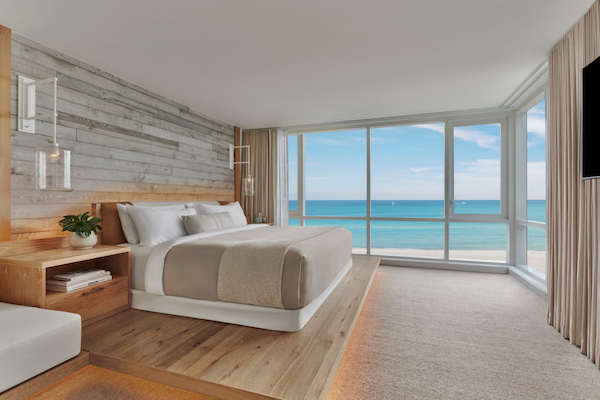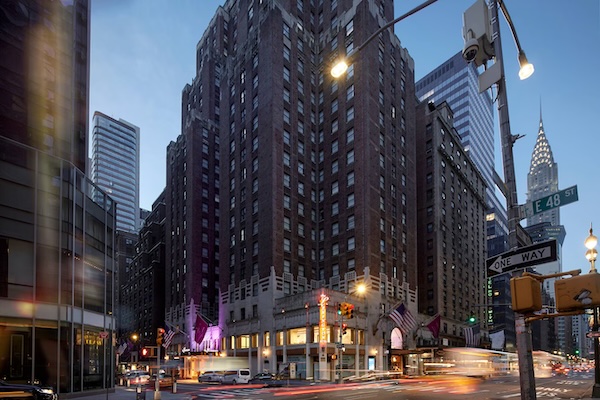He’s back. He never left.
Barry Sternlicht founded Starwood Hotels & Resorts in 1995. He stepped down as CEO in 2004 to focus his attention on Starwood Capital Group, the investment firm he co-founded in 1991. In 2015, Starwood Hotels was acquired by Marriott International. Ten years later, Sternlicht is reanimating the Starwood Hotels name—and though not a recluse, Sternlicht isn’t one for frequent public pop ins. He granted one this week during NYU IHIF, accepting an honor from longtime friend Jonathan Tisch. But this wasn’t just an anodyne award handoff: Sternlicht had some instructive, if not portentous words for the gathered audience of hoteliers.
“The industry is evolving; consumer tastes are evolving,” he said. Sternlicht has served on the board of Estée Lauder for more than two decades, a company with brands that include La Mer, Clinique, Le Labo, to name just three—brands that make people look good and smell good and feel good. Barry Sternlicht is one of the most sagacious people in business and finance, so when he says that the rise of independent brands are hurting older brands, take note. They are coming for the legacy old guard and using a digital arsenal to extract market share. He alluded to Kylie Jenner and her Kylie Cosmetics and its billion-dollar valuation and Hailey Bieber, who recently sold her beauty brand Rhode to E.l.f. Beauty for $1 billion. “These brands are taking it,” he said.
Then he brought it home: “The same thing is happening in almost every consumer category, including hotels,” he said. “There are people willing to try things, and it’s not about your billion-dollar marketing budget. It’s about connecting to the right people with a with a tight mission and then drawing that group into your property.”

When Sternlicht bought Westin and Sheraton and created W Hotels, there was clear delineation between the brands, he said: people could clearly identify which room belonged to which brand. He said a lot of that has now gone with the bigger lodging companies where there is less differentiation between brands. It’s the independent, start-up brands that are gaining on the long entrenched brands and why many hotel companies have created affiliation programs or so-called soft brands to lure in independent hotels that may speaker better to today’s traveling consumers who want a more authentic experience.
“The idea is to differentiate and figure out how to find something you can get pricing power with and the instinct is to go like everyone else, and that’s exactly the wrong strategy to adopt,” he said. “You’ve got to think outside the box.”
He alluded to what he called “piranha brands” that are more and more eating up older brands. Among the Estée Lauder cohort, Sternlicht said the smaller, independent brands are now around a third of the market, up from 10% only a short time ago.

And though Sternlicht is credited with building some of the coolest and hipest brands, from the seminal W to the green luxury 1 Hotels (Starwood’s other two brands are Baccarat and Treehouse), while the bricks and sticks matter and the attendant design, service is still the differentiator. When Starwood Capital opened 1 Hotel South Beach—its first 1 project and a hotel converted from what he referred to as a “horrible” prior box—the room rates tripled. “It’s a beautiful hotel,” Sternlicht said, but that’s not what guests commented about. “If you read all the comments, it’s always about Stacy at the pool or Rob at the beach,” he said. Guests like the design sure, but they compliment the employees. That’s a great opportunity for people. It’s like, focus on service,” Sternlicht said.
Great service and a great box still need attentiveness. Starwood Capital recently acquired a pack of 10 Radisson Blu hotels in London totaling more than 2,000 rooms. Sternlicht relayed an instance where he walked outside one recently and dirt was strewn about, there were no chairs to sit in, the awning was ripped. “It’s not that hard of business,” he said. “Clean it up and pay attention. Do everything a little better.”

He added that in operations, “taking costs out is for monkeys; driving revenue is the hard part.” In his estimation, return on investment means thinking about each operating department—rooms to F&B—and maximizing returns in each. Consider the erstwhile W New York on Lexington Avenue, across the street from the now soon-to-reopen Waldorf Astoria and its iconic Bull & Bear. Sternlicht partnered with Rande Gerber, husband of Cindy Crawford and founder of tequila brand Casamigos, on Whiskey Blue, the bar inside the W, and also with chef Todd English on the restaurant. “I joked that we would empty out the Bull & Bear,” he said. And they did, along with almost every other bar/restaurant in the immediate Midtown East vicinity—it was that hot of a scene.

